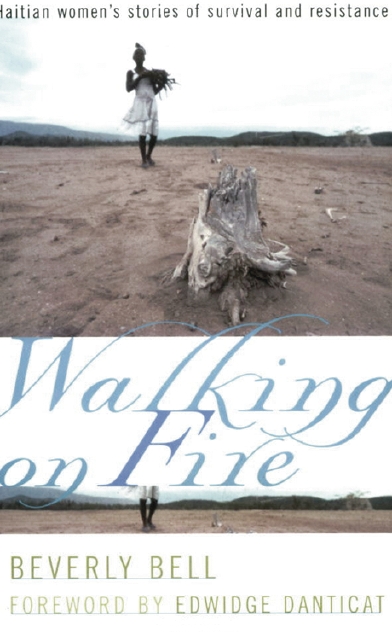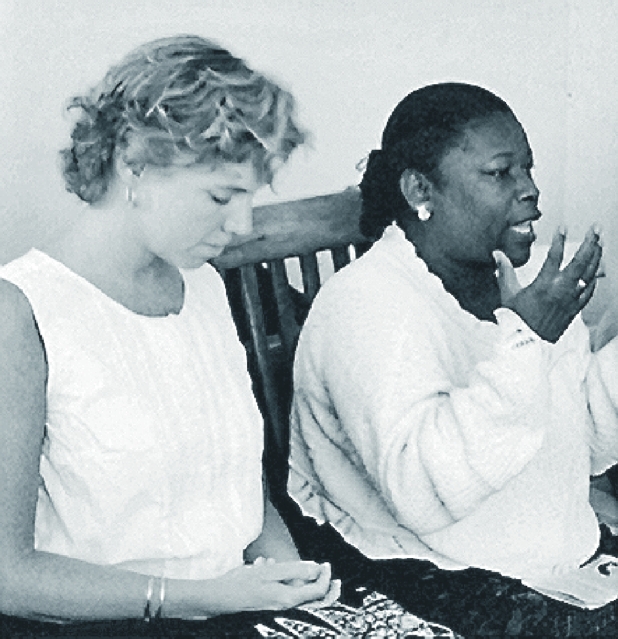Words On My Lips
An Interview With Beverly Bell, Author Of Walking On Fire


Beverly Bell with Simone Alexandre. Alexandre, who died last year, is called Louise Monfils in Walking on Fire . Photo courtesy of Megan Bowers, Taos News .
Courtesy of Beverly Bell








